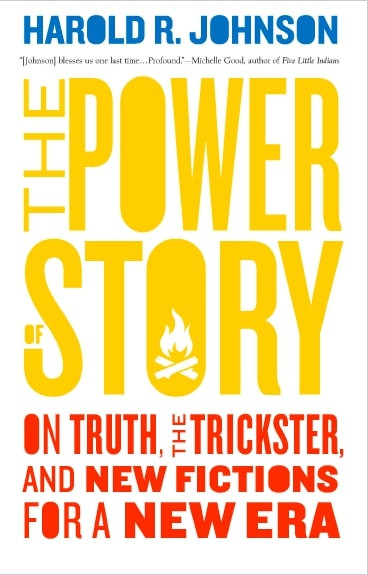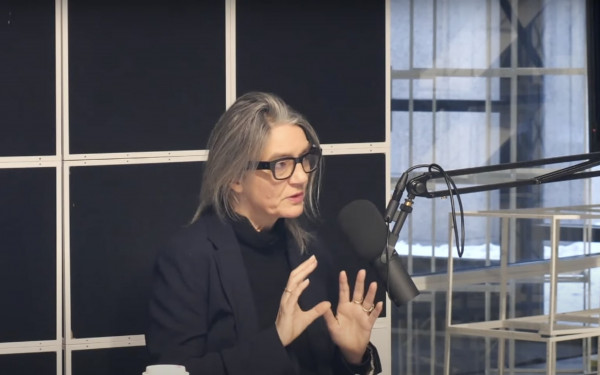Harold R Johnson’s Philosophy of Storytelling
Author Delivers Impactful Swan Song with The Power of the Story
Harold R Johnson (1957-2022), a member of the Montreal Lake Cree Nation, was an Indigenous writer and lawyer, and served in the Canadian Navy.
His 2016 book Firewater: How Alcohol is Killing my People (and Yours) was a finalist for the Governor General's Award for English-language non-fiction. Originally from Molanosa, Saskatchewan, Johnson studied at Harvard Law school, after which he returned to Canada and managed a private practice for years. Eventually, he was made crown prosecutor of Saskatchewan.
Released in October 2022, The Power of Story: On Truth, the Trickster, and New Fictions for a New Era, details Johnson’s philosophy of storytelling. Drawing from Indigenous ways of knowing, Johnson asserts that everything–personal lives, careers, histories–can be conceived as a story, and that misunderstandings between people arise from conflicting stories.
The Power of Story is the last book Johnson worked on before he passed, and it is quite the legacy to leave behind. This text recounts a meeting between Johnson and a multi-faith ecumenical society who asked him to speak on the power of storytelling. Recited around Johnson’s outdoor fire, these individual stories are what the book is made up of. In Johnson’s eyes, everything is a story, and the capability of changing one’s story is something to be cherished.
Often focusing on his own experiences and culture, he tells stories of his Indigenous upbringing, and uses his understanding as a crown lawyer to provide many lenses through which to view the topics he discusses. Though much of the subject matter in this novel can be quite serious, Johnson’s calming way of writing lends his stories an optimistic tune, while not omitting the facts.
This matter of fact approach to storytelling is aided by the work’s conversational setting. Speaking to his guests around the fire, Johnson often asks them to refill his tea, and notes their reactions to his stories. He punctuates the end of each story by communicating with his guests, and by proxy the reader as well. These indirect asides to the reader work together to create a well-balanced conversation between the reader and Johnson. By asking questions directly to his guests, the reader is placed in the conversation.
When he asks questions, adding comments and reassurance, Johnson creates natural pausing points in his book that allow for self-reflection on what he is saying. These pausing points are important, especially considering the subject matter at hand. About halfway through his book, Johnson recounts stories about the colonization of the Americas, and explains, “The main reason Europeans stumbled upon the Americas in search of perfume and spice is because they stank and their food was rotten.” He then takes a pause, addressing his guests reaction: “I see a few people squirming. It's not comfortable to hear negative stories about your history.” It is these opportunities for reflection in his writing that allows for Johnson’s book to read so cohesively while being thought provoking. He takes the time to address the subject matter he's writing about, and gives readers a helping hand in digesting it.
Johnson covers many topics in his book, ranging from childhood anecdotes to stories about the mistreatment of his people. In telling his own story, he demonstrates his multifaceted philosophy of storytelling. His coherent recounting is educative as he describes his positionality in the social contracts where his stories take place.
He maintains the power of stories throughout his book . He explains that everyone is in charge of their own story, and their own story telling. In using these stories, he acts out life lessons that he shares with his guests in effort for them to become storytellers as well. He punctuates the end of a story near the end of the book with: “It's your story, your journey. You are a good storyteller, you can take the plot from here forward and create your masterpiece.” The beautiful symbolism associated with stories here allows for creativity and imagination to flourish for those wishing to take a page from Johnson’s book and begin their own storytelling.
Clear and telling, this final work by Johnson is educational, cohesive and a very intriguing read. The Power of Story: On Truth, the Trickster, and New Fictions for a New Era was published by Biblioasis and can be found on their website.
This article originally appeared in Volume 43, Issue 7, published November 22, 2022.







